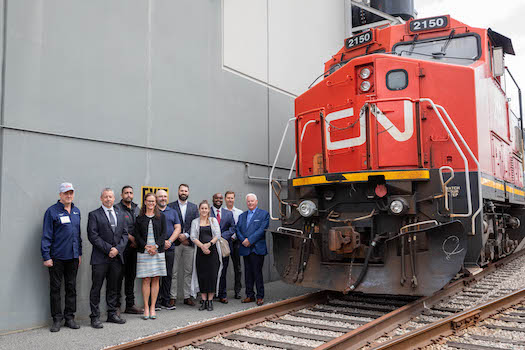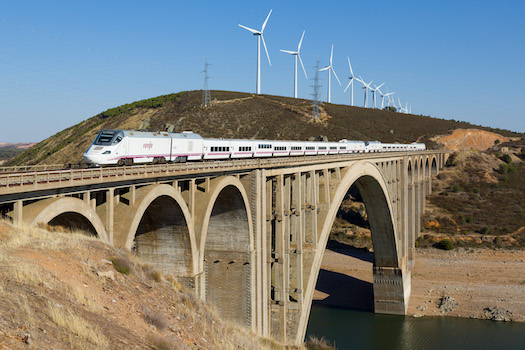Moonshot reminder: energy reliability and affordability still count

A senior oil executive has offered some words of caution for the federal government as it prepares to unveil details of its ambitious targets for energy emission reductions in its quest for net-zero by 2050.
“What's important for Canadians is that the government is going to be really clear about the pace that we can do this, what it will mean in terms of cost to consumers and what it will mean in terms of our expectations,” Alex Pourbaix, executive chair of oilsands company Cenovus Energy Inc., told last week’s Alberta Innovates Inventures conference in Calgary.
“You have got to be thoughtful, you have to do it at a measured pace and you can’t ever give up reliability. You can put up wind turbines, you can put up solar panels, but the key is that it [energy] has to be reliable and affordable, and that is where the challenge is.”
Pourbaix noted how Texas led U.S. states in the development of renewable energy, but in 2021, “literally hundreds” of people died of exposure in an unanticipated cold snap after the Texas power grid failed. (The state put the final death toll at 246).
“We live in an incredibly cold country, we have long distances between our cities,” he said. “We cannot have a January where it goes to -40 for eight days, if we don't have suitable energy — both baseload and backup.”
Pourbaix, who recently spent time in Ottawa talking with government officials, said what worries him most about the energy transition is that “we are truly talking about decarbonizing the Canadian economy, the North American economy. To call this a moonshot is not to overstate the challenge of what we're talking about doing.”
Under its enhanced Paris Agreement target, the federal government is targeting a 40-45 percent reduction in carbon emissions from 2005 levels by 2030 and net-zero electricity by 2035. The oil industry, however, has said that while it supports net-zero by 2050, it will be challenged to fully meet the 2030 target.
Pourbaix also predicted that while the world will continue using large quantities of oil and natural gas for decades to come, there would continue to be huge improvements and reductions in greenhouses gases. Cenovus, for example, is part of the Pathways Alliance, a consortium of oilsands producers working on a $16.5 billion carbon capture and storage network in the oilsands area of northern Alberta.
“But for people to think that we're going to snap our fingers and we're going to replace an entire culture and economy built on cheap, reliable gas and oil, I think is really unlikely,” Pourbaix told the conference.
Fellow panelists Peter Tertzakian, deputy director of the ARC Energy Institute, and Heather Chalmers, president and CEO of GE Canada, also suggested these goals could involve trade-offs between secure and clean energy supply, which need to be discussed.
“We have come out of an era where it's just assumed that our energy can be cheap, safe, and secure but now we know there's an imperative for it to be very clean, and the net-zero target is 2050,” said Tertzakian. “The question is: can all the features that we expect as civilians in a modern society be fulfilled — cheaply, clean, safe, and secure?”
According to Chalmers, time is running out; achieving the government’s ambitious targets will require massive infrastructure projects, which will also requires aligning and harmonizing work at the federal, provincial, and municipal level. “At some point, if fighting climate change is our number one priority, then something has to give, and not every regulation has that same level of priority.”
Because electricity in Canada is provincially regulated, she pointed out, each jurisdiction will be in a position to decide how it decarbonizes its grid. “It's going to take a portfolio solution that is quite dependent on what you're starting with, the type of assets that you have today, what you have access to. Not everybody has good hydro or wind, and what you can afford to do in order to get to get to net-zero.”
For Pourbaix, governments have to be thoughtful about the resources, the opportunities, and the challenges, then come up with something that works for that particular region. He also agreed that decarbonization will require “unbelievable amounts of infrastructure and massive capital projects”, including natural gas and CO2 pipelines and high voltage, possibly DC (direct current) power lines.
“We will not be able to do this unless we have a regulatory system that actually allows these kinds of projects to move — certainty as to what the requirements are, certainty as to what you need to demonstrate, and then a distinct timeline, and then the ability not to be tied up in endless judicial review. If we want that net-zero, we have to solve this.”
As far as he is aware, Pourbaix added, no other major oil and gas producing country in the world has aspirations to move their industry to net-zero.
“And as I also remind politicians, this little industry of ours represents somewhere in the range of about 10 percent of the Canadian economy and we have 50 percent of the undeveloped reserves in the world that are available to the private sector to invest in.”
Over the next 30 years, the oilsands alone will contribute an estimated $3 trillion to Canada’s GDP, according to Pourbaix. “In order to ensure that that is available . . . we just have to make sure that we don't burden our industry with such incredible costs that it renders us uncompetitive on the world stage.”
Tertzakian noted that when the U.S. reached the moon in 1969, everyone was working together. But in Canada the problem in achieving net-zero is that society and the government's policies — as well as the different factions and industries and incumbents — are not working together.
“This is not a technological problem,” he said. “The issue is trying to match technology, ultimately, with capital markets, with policies that are not one-dimensional, and blunt in their application [and] that are tailored to try and optimize the whole thing.”
R$
| Organizations: | |
| People: | |
| Topics: |
Events For Leaders in
Science, Tech, Innovation, and Policy
Discuss and learn from those in the know at our virtual and in-person events.
See Upcoming Events
You have 0 free articles remaining.
Don't miss out - start your free trial today.
Start your FREE trial Already a member? Log in
By using this website, you agree to our use of cookies. We use cookies to provide you with a great experience and to help our website run effectively in accordance with our Privacy Policy and Terms of Service.





